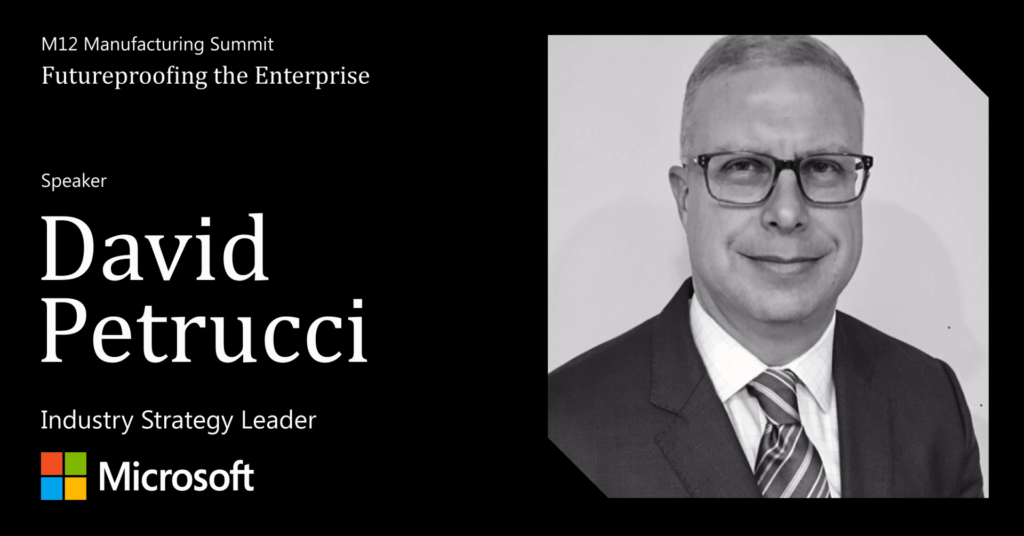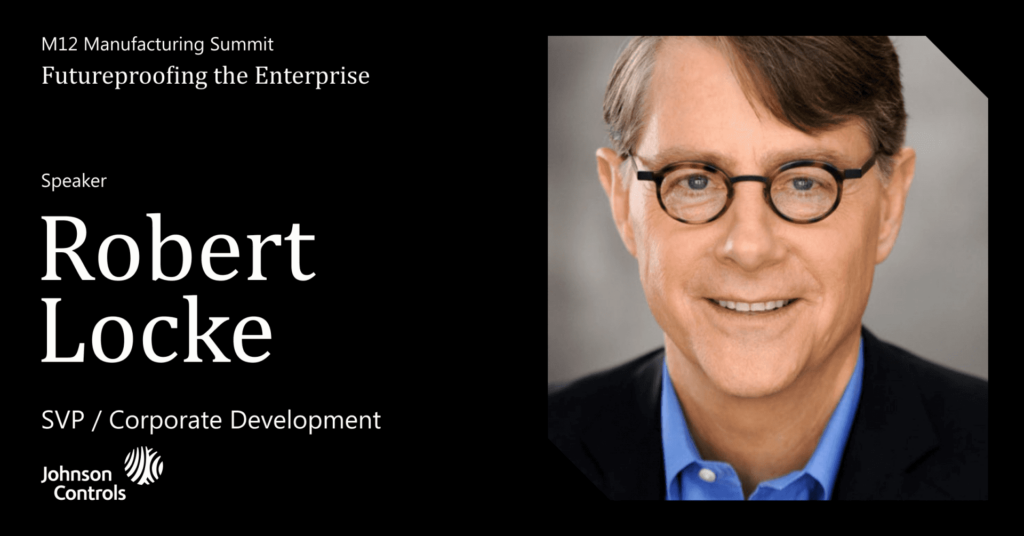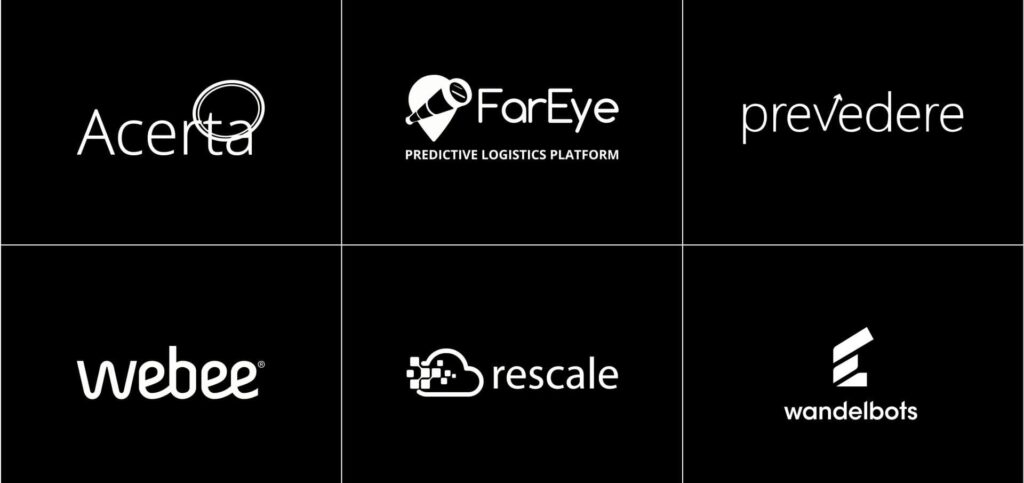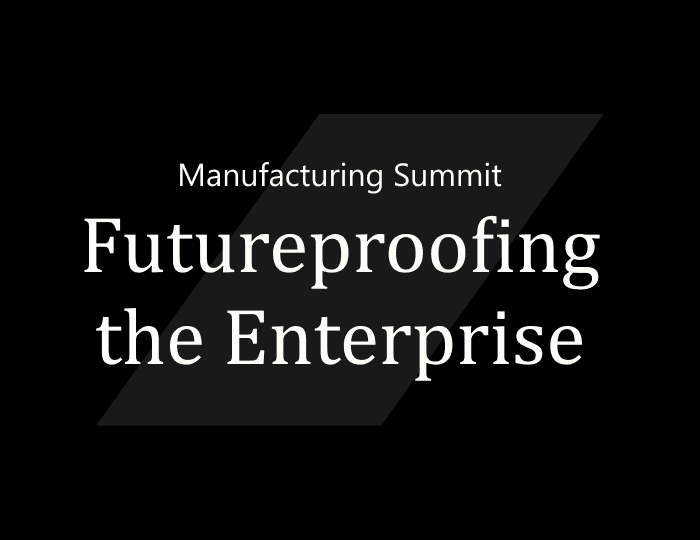From the COVID pandemic to the Ever Given’s mishap in the Suez Canal, recent shocks to the global supply chain have demonstrated that the need for resilience is greater than ever.
The turmoil and uncertainty of the last year-plus exposed serious risks and vulnerabilities, with automakers like Ford and GM warning of complete shutdowns and President Biden calling for an all-hands-on-deck approach to address shortfalls in semiconductor supply, key minerals and materials, pharmaceuticals, and advanced batteries. As manufacturers scramble to ramp up investments in R&D, accelerate process innovation, diversify their supplier base, and build for more flexibility and surge capacity, how else should they prepare if disruption is the new normal?
Last week, we held our inaugural M12 Manufacturing Summit to answer just that, with an exciting panel discussion and showcase of M12 portfolio companies accelerating intelligent manufacturing. We were proud to host industry business decision makers representing global enterprise and mid-market companies across manufacturing, automotive, retail, food and beverage, and more. Our goals for this event were threefold:
- Capture top-of-mind insights for industry professionals: As B2B investors, it’s critical that we understand the pain points of business decisionmakers. At this summit, we aimed to get a deeper understanding of the most significant opportunities and challenges in manufacturing today, and to better forecast tomorrow’s trends.
- Facilitate customer connections: Several of our portfolio companies are driving innovation in manufacturing and supply chain excellence. It was important for us to showcase their impact while addressing priority manufacturing challenges and opportunities with enterprise-ready startup technology.
- Cultivate our network: Events like this activate a flywheel of enterprise customer needs, startup solution adoption, and anticipated risks or trends to inform where we should look for innovation next. But that flywheel requires authority, trust, and relationship building. This summit served as a foundational block of the innovation flywheel we aspire to build.
I want to extend a special thank you to our speakers Robert Locke, SVP of Corporate Development – Johnson Controls and Microsoft Industry Strategy Leader David Petrucci who joined me for an engaging panel conversation.


Here are my key takeaways from the session:
- The global pandemic and resulting work-from-home mandates have been a catalyst, accelerating the uptake of new technology. Over the past year and a half, we’ve witnessed dramatic changes in product development and delivery—primarily enabled through decentralization and an openness to new trust and collaboration models across distributed teams. Many business decisionmakers are reconsidering the specific location and utilization of resources in response to a constrained supply chain. This includes heightened demand for more interoperable and connected systems, and interest in new models like “lights-out factories” that are fully automated and require no human presence.
- A core challenge for the manufacturing industry is keeping up with the rapidly accelerating pace of technology advancement—without letting policy and process hinder digital transformation. David explained that an organization’s risk-aversion can get in the way of critical innovation and sometimes inhibit a company’s ability to compete. To successfully harness disruptive technology, manufacturers must remove procurement hurdles, prioritize culture, and reskill or retrain talent as needed. For example, if your company is adopting 3D printing at production scale, ensure that your design team is fully up-to-speed on the implications to their work.
- Robert shared his perspective on implementing innovation inside a 135-year-old product-driven company with over 2000 locations, including over 120 plants. A five-time startup CEO now responsible for the venture arm and new business creation at Johnson Controls, Robert shared that collaboration and open innovation are vital, emphasizing how important it is to leave behind the “Not Invented Here” mentality. He further explained that innovation can’t start in a conference room; realizing the benefits of great new technology requires mapping to actual processes and outcomes.
“True innovation must begin with the customer, and what it will take for them to succeed. You have to start there and work backwards—you can’t start with the tech and look for problems to solve. There’s always a disconnect between what works in a lab and what works in reality. Innovation can’t be an academic exercise—it must be experiential and demonstrate value, with the room to try and potentially fail.”
– Robert Locke | SVP, Corporate Development | Johnson Controls
- David emphasized that advanced AI and computer vision are transforming precision inspection and quality assurance to improve first-pass yield, reduce operating costs, and improve customer satisfaction—especially in a tight labor market. Robert highlighted the technology trend as well: computer vision is also enabling manufacturers to watch what’s happening across and within their manufacturing footprint. Manufacturers can not only observe product development at scale, but also correlate performance with production to generate insights about quality, compliance, and safety.
- The combination of AI-at-the-edge and edge compute is expanding capabilities across manufacturing, enabling process automation, anomaly detection at scale, and powerful predictive maintenance.
- When it comes to adopting advanced technology, David’s recommendation is to iterate and learn before building for scale, citing a specific use case with Unilever and The Marsden Group (formerly a partner; acquired by Microsoft in March 2021). What began as one digital twin pilot at one Unilever facility on one piece of equipment, eventually scaled to 44 plants, thousands of pieces of equipment, and full autonomous operations. The team learned from their activation of the pilot, and course corrected before bringing the solution to dozens of facilities.
It’s an ecosystem play these days. I think that’s what’s changed the most about our industry. How do we play together to bring the best possible capabilities to market, and do that from a true ecosystem standpoint where it’s not 1:1 or 1:2 but 1:many?
– David Petrucci | Industry Strategy Leader | Microsoft

After our panel conversation, we heard rapid-fire pitches from six M12 portfolio companies with innovative answers to manufacturing industry challenges. We continue to be inspired by their commitment to helping the world’s leading manufacturers streamline product development and delivery, improve end-to-end logistics, better forecast supply and demand, and pave the way forward in smart manufacturing. I want to extend my gratitude to our presenters:
- Greta Cutulenco, CEO & Co-Founder of Acerta: automotive intelligence to detect malfunctions
- Larry Klimczyk, Global Lead – Technology Partnerships at FarEye: real-time supply chain tracking and logistics predictability
- Rich Wagner, CEO & Founder of Prevedere: predictive analytics of future business outcomes
- Mark Whittenburg, Account Executive at Rescale: high performance computing in the cloud
- Anett Diaz, VP Business Development at Wandelbots: low-code, no code industrial robot programming and skill development
- Cecilia Flores, COO & Co-Founder of Webee: low-code, no code industrial IoT toolset
Thanks again to our speakers, presenters, and key Microsoft Industry and Field teams for your partnership and support. This summit was an important first for M12, and we’re excited to keep this flywheel in motion. Have a topic in mind or want to meet our companies? Please reach out to our team.

